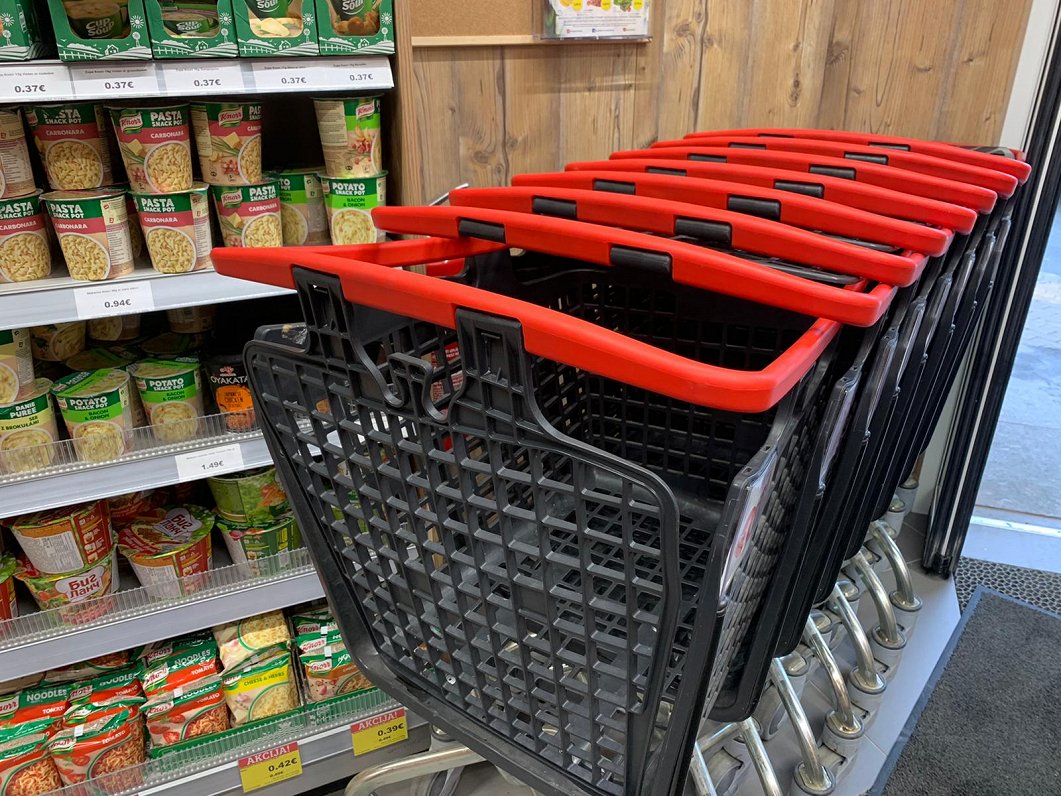Industry experts acknowledged that the rise in food prices would have been even more rapid if the German retail network “Lidl” had not entered Latvia.
Ingūna Gulbe, head of the Agricultural Market Promotion Centre (LTVC), said that food prices in the Baltic countries currently tend to fall. Dairy products, and some oils, with the exception of olive oil, have a very significant price undercutting, while sunflower oil has become cheaper even by around 40%.
“The trend is to cut [prices] for those products for which world prices are also declining. Not all product [prices] in the world are declining, and not here either," Gulbe said.
For example, the price of bread in Latvia as a whole is not decreasing, for some types of bread it is even increasing, but the price of the cheapest bread has reduced, the head of LTVC added. “That's probably because the purchasing power of the population is very limited.”
Speaking about the impact of drought on food prices in the autumn, Gulbe said that the situation in Latvia has a minimal impact on prices in shops, but also in Europe and around the world there is heat and drought. “There is nothing good about it, and the bombing of the Ukrainian dam also took out a large food area,” Gulbe said, adding that the potential impact of these events on food prices will be seen later in the autumn.
She also said that at the moment all parties – producers, processors, traders – are trying to say that drought will be a reason for price rises. However, Latvia's regions also have a very different situation, and elsewhere even the harvest is better than in the previous year.
“Droughts will certainly impact [prices] but there is no need to hide under this and say that everything is going to rise,” Gulbe concluded.
Noris Krūzītis, executive director of the Latvian Food Traders Association (LPTA), pointed out that it is not that food prices in Latvia are declining – there are “whole groups of goods where food prices are rising”. One of them is fresh meat and meat processed products.
"We're getting full-scale [requests] for price increases, of course, traders are braking [them]. There is currently a whole range of products, even for canned food. Fruit and berries have price increases. In principle, this process has not stopped," Krūzītis said.
According to him, food prices, which soared just last year, have not decreased with some exceptions at the moment.
Sanita Uljane, head of the Unfair Trade Practices Division of the Competition Council (KP), said that KP had launched a total of three studies in the field of food retailing. In one of these, KP assessed the formation of prices for basic products, such as eggs, milk, meat, and fish, from farmer to trader. The study involved the ten largest food traders. For the time being, it is too early to draw any conclusions on this research.
According to the KP representative, in another market surveillance case, KP is assessing the level of concentration in the food retail segment.
“Indeed, over the last seven, eight years, the two big chains [Rimi and Maxima] have occupied around 60% of the market, but since Lidl entered Latvia, their market share has fallen by about 8%-9% at the expense of Lidl, whose market share is currently around 10%. It could be said that Lidl's entry into Latvia has made its own adjustments.
"If Lidl had not entered, then its competition would still be less tense and the prices we see on supermarket networks would allow it to be by some percentage points higher than they are at the moment," Uljane said.
The head of LTVC added that there is still a shortage of other big food traders in Latvia, because Lidl is not the same as Maxima and Rimi, it is a different store system, a different shop.
In her opinion, government representatives should go to other European countries and invite big food chains to enter Latvia's food retail segment, while small food traders should be given higher bonuses.






























